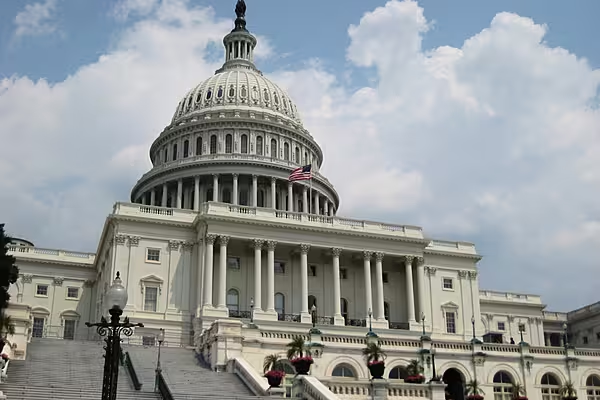The battle to define what Americans should eat is pitting nutritionists against deep-pocketed groups that are spending almost 14 times more cash on lobbying in Washington.
Coca-Cola Co. and food-industry and farm groups concerned about the recommendation of a government panel to cut sugar and meat consumption accounted for 85 per cent of the entities weighing in on the issue from April to June, with health and environmental groups making up the rest, federal records show.
The corporate organisations spent $15.3 million lobbying on the guidelines and other issues in the quarter, compared with $1.1 million by groups supporting the proposals, including the American Academy of Pediatrics. Specific spending isn’t tracked for work on the guidelines, which were proposed by a panel of scientists five months ago.
“When you’re a non-profit, you rely on donor dollars, and we don’t have the resources others have,” said Kristy Anderson, government-relations manager in Washington for the Dallas-based American Heart Association. “When we advocate, it comes down to the science and our reputation.”
The recommendations, if adopted by the Obama administration, would move nutrition policy closer to the goal of reducing the overconsumption that is blamed for almost tripling US obesity rates from the 1960s to 2010.
Added Sugars
The guidelines are used to shape school lunch menus and the $6-billion-a-year Women, Infants and Children (WIC) programme, which helps more than 8 million Americans buy groceries. The departments of Health and Human Services and Agriculture plan to release their twice-a-decade recommendations by the end of this year.
The non-partisan Dietary Guidelines Advisory Committee, a panel of scientists advising the agency, proposed the first explicit target on added sugars from food processing. It recommended that US adults consume no more than 10 per cent of all calories therefrom, down from the average 13 per cent now. Consumption of lean meat, favoured in the 2010 guidelines, warranted only a footnote in 2015, with encouragement to cut meat consumption in general.
Last week, the Food and Drug Administration endorsed the 10-per-cent concept as part of a labelling proposal to begin noting added-sugar content on cereal boxes, soda bottles and other packaged foods. That consumption level would be the basis of the agency’s recommended daily limits as printed on labels.
Scientific Basis
The American Beverage Association, whose members include Coca-Cola, PepsiCo Inc. and Dr Pepper Snapple Group Inc., is pushing back on added sugars, saying that those calories don’t cause obesity more than any other calories.
The beverage group hired lobbyists from three firms and is using its staff in “talking with Congress and various bureaucracies in Washington that have a hand in this advice to make sure diet recommendations are based on sound science”, spokesman William Dermody said in an email.
The association also is using social media to encourage sending emails to lawmakers about “keeping government out of our grocery carts. The response has been impressive,” Dermody said, without providing specifics.
One champion for keeping sugar in our diets is Warren Buffett, whose Berkshire Hathaway Inc. is the largest investor in Coca-Cola and owns about one quarter of Cheez Whiz-maker Kraft Heinz Co. At Berkshire’s annual meeting in Omaha, Nebraska, in May, Buffett said that happiness is important to longevity, and that consumers enjoy Coca-Cola products.
Meat Recommendations
“I don’t see smiles on the faces of people at Whole Foods,” said Buffett, 84, citing a grocery chain known for offerings such as organic frozen blue curled kale.
Recommendations on meat, meanwhile, are opposed by livestock groups.
Downplaying lean meat’s contribution to a healthy diet doesn’t help consumers make healthy choices, said Kristina Butts, executive director of legislative affairs for the Washington-based National Cattlemen’s Beef Association.
“Our biggest concern is about the process [of the advisory panel],” which, she said, isn’t transparent. The association’s goal is to give greater prominence to an endorsement of lean meat as appropriate to eat, she said.
Congress Actions
Lawmakers also have sought to limit the scope of the panel’s work, attaching language to appropriations bills.
A Senate Appropriations Committee bill approved on 16 July contains language added by subcommittee chairman Jerry Moran, a Kansas Republican, that the guidelines can use only “nutritional and scientific evidence” for its recommendations.
The House version would bar the release or implementation of the guidelines unless the changes are based on scientific evidence and apply only to “diet and nutrient intake”.
Such measures would make it difficult to include proposals not directly related to diet, such as weighing environmental sustainability in diet choices or imposing a soda tax to cut purchases of sugary beverages tied to increased obesity. The advisory panel mentioned both in its report.
Still, Tom Brenna, a nutrition and chemistry professor at Cornell University in Ithaca, New York, and an advisory panel member, said that he remains hopeful that the government may not stray too far because of heightened public interest.
“I think we’re having an effect, no matter how the guidelines will turn out,” Brenna said. “If we have to repeat ourselves, we’ll say them again and again and again.”
News by Bloomberg, edited by ESM














